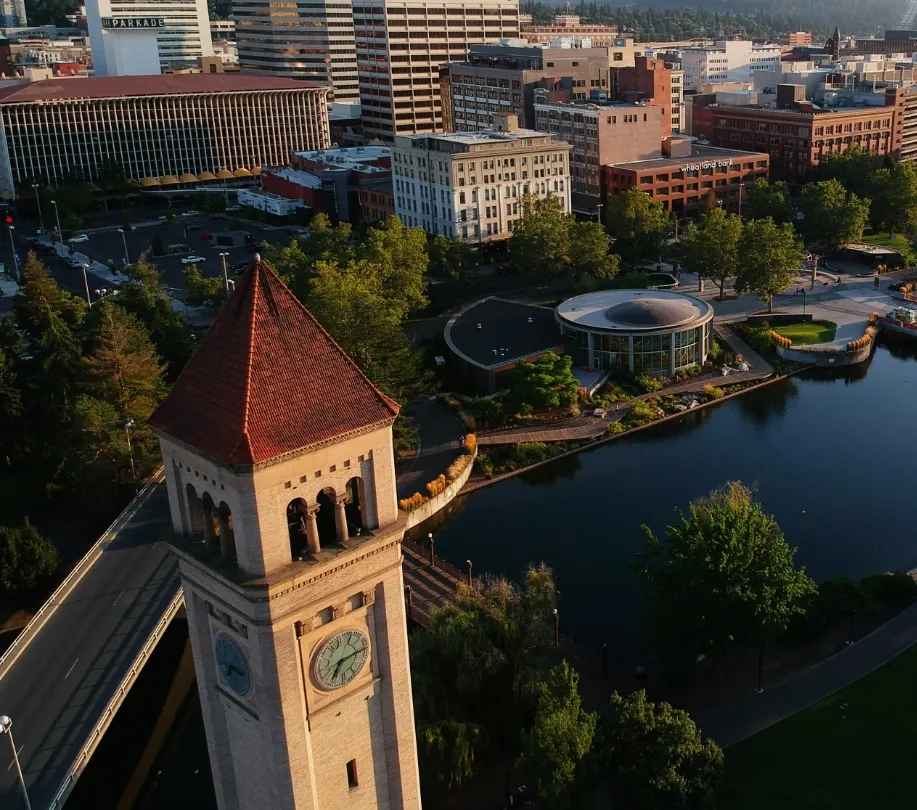Coeur d’Alene Child Custody Lawyer
When facing a child custody dispute in Coeur d’Alene, Idaho, having experienced legal representation is necessary to protect your parental rights and ensure your children’s best interests.
Child custody matters are among the most emotionally challenging and legally complicated issues families face, requiring skilled attorneys who understand both Idaho family law and the local court system in Kootenai County.
Contact Us Today For A Consultation
Understanding Idaho Child Custody Laws

Idaho Code Section 32-717 outlines the factors courts consider when making custody determinations, prioritizing the child’s best interests above all other considerations.
The legal framework in Idaho recognizes two primary types of custody: legal custody, which involves decision-making authority regarding the child’s welfare, education, healthcare, and religious upbringing, and physical custody, which determines where the child will primarily reside.
Courts may award joint custody, sole custody, or various combinations depending on the specific circumstances of each case.
Where You Can Find Crouse Erickson in Coeur d’Alene
Crouse Erickson Law Firm, conveniently located in downtown Coeur d’Alene at 601 East Front Avenue, Suite 205, is North Idaho’s reliable choice for divorce legal services and child custody settlements.
Situated in the city’s legal hub, just minutes from Tubbs Park and the McEuen Park waterfront, we offer easy access for clients across Kootenai County and surrounding areas.
Types of Child Custody Arrangements

Idaho law defines two types of child custody:
- Legal Custody: This refers to the right to make major decisions for your child, including those about education, healthcare, and religious upbringing. Courts may award joint legal custody to both parents or sole legal custody to one parent.
- Physical Custody: This determines where the child lives. Courts can award joint physical custody, where the child spends significant time with both parents, or sole physical custody, where the child lives primarily with one parent. The other parent, often called the non-custodial parent, typically receives a schedule of parenting time (visitation).
Courts prefer to award joint custody when it serves the child’s best interests. However, if evidence shows that a joint arrangement would be detrimental to the child’s well-being, a judge may award sole custody to one parent.
Factors Courts Consider in Custody Decisions
Idaho courts evaluate numerous factors when determining custody arrangements, ensuring decisions align with the child’s best interests. These factors include the child’s relationship with each parent, the parents’ ability to provide stable home environments, work schedules, geographic proximity, and the child’s adjustment to their current living situation.
The court also considers each parent’s physical and mental health, history of domestic violence, substance abuse issues, and willingness to encourage the child’s relationship with the other parent. The child’s preferences may be considered, particularly for older children who can express reasoned opinions about their living arrangements.
Financial stability plays a role in custody determinations, though it’s not the primary factor. Courts recognize that a parent’s love, commitment, and ability to provide emotional support often outweigh financial considerations.
The Role of a Child Custody Lawyer
A skilled child custody attorney in Coeur d’Alene provides invaluable assistance throughout the legal process. These professionals understand local court procedures, judicial preferences, and practical strategies for presenting your case. They help gather necessary documentation, interview witnesses, and prepare compelling arguments that support your position.
Experienced custody lawyers also assist with negotiating settlement agreements outside of court, saving time, money, and emotional stress for all parties involved. When litigation becomes necessary, they provide vigorous representation, cross-examine witnesses, and present evidence supporting your parental rights.
Preparing for Your Custody Case
Successful custody cases require thorough preparation and strategic planning. Begin by documenting your involvement in your child’s daily life, including school activities, medical appointments, extracurricular events, and routine caregiving responsibilities. Maintain detailed records of your interactions with your child and any communications with the other parent.
Gather evidence supporting your ability to provide a stable, nurturing environment. This includes employment records, housing information, character references, and documentation of your child’s academic and social progress under your care. If allegations of unfitness arise, prepare evidence refuting these claims and demonstrating your commitment to your child’s welfare.
Consider the practical aspects of your proposed custody arrangement. Develop a realistic parenting plan that addresses schedules, transportation, decision-making processes, and dispute resolution mechanisms. Courts appreciate detailed, well-thought-out proposals that demonstrate your commitment to co-parenting effectively.
We can help you fill out Idaho’s official Parenting Plan form to help explain how a parenting plan works.
Mediation and Alternative Dispute Resolution
Idaho courts encourage parents to resolve custody disputes through mediation when possible. This process involves a neutral third party who helps facilitate discussions between parents, working toward mutually acceptable agreements. Mediation offers several advantages, including reduced costs, faster resolution times, and greater control over the outcome.
Successful mediation requires good faith participation from both parents and a willingness to compromise. While not appropriate for all situations, particularly those involving domestic violence or substance abuse, mediation can be highly effective for parents who can communicate respectfully and prioritize their children’s needs.
Modifying Custody Orders
Life circumstances change, and custody arrangements may need modification to reflect new realities. Idaho law permits custody modifications when substantial changes in circumstances affect the child’s best interests. Common reasons for modification include parental relocation, changes in work schedules, remarriage, or concerns about the child’s welfare.
Requesting custody modifications requires demonstrating that circumstances have changed significantly since the original order and that the proposed changes serve the child’s best interests. This process involves filing appropriate legal documents, presenting evidence supporting the requested modifications, and potentially appearing in court.
Enforcement of Custody Orders
Legal enforcement mechanisms are available when parents fail to comply with custody orders. Violations may result in contempt of court charges, fines, makeup visitation time, or even modification of custody arrangements. Documenting violations and working with an attorney ensures appropriate legal action when necessary.
Choosing the Right Attorney
Selecting the right child custody lawyer in Coeur d’Alene requires careful consideration of several factors. Look for a child custody attorney with extensive experience in Idaho family law, particularly those familiar with Kootenai County courts and judges. Experience handling cases similar to yours is particularly valuable.
Consider the attorney’s communication style and approach to family law. Some attorneys prefer aggressive litigation strategies, while others emphasize collaborative problem-solving. Choose someone whose approach aligns with your goals and comfort level.
Evaluate the family law attorney’s reputation within the legal community and among former clients. Professional references, online reviews, and bar association ratings can provide insights into an attorney’s competence and professionalism.
Costs and Financial Considerations
Child custody cases involve various costs, including attorney fees, court filing fees, expert witness fees, and potential mediation costs. Understanding these expenses upfront helps you budget appropriately and make informed decisions about your legal representation.
Many attorneys offer flexible payment arrangements, including payment plans or limited scope representation for specific aspects of your case. Discuss fee structures clearly during initial consultations and ensure you understand all potential costs before proceeding.
Moving Forward
Child custody disputes represent challenging periods in families’ lives, but skilled legal representation can help protect your parental rights and secure arrangements that serve your children’s best interests. Working with an experienced Coeur d’Alene child custody lawyer provides the guidance, support, and advocacy necessary to navigate this complex legal process successfully.
Remember that custody determinations focus on children’s welfare and long-term happiness. While legal victories are essential, maintaining perspective on what truly matters most—your children’s well-being and ongoing relationship with them—helps guide decisions throughout this difficult process.
Child Custody FAQs
What is the “best interest of the child” standard in Idaho?
The “best interest of the child” is the guiding principle for all custody decisions in Idaho.
A judge must consider a specific set of factors outlined in state law to determine what living arrangement and decision-making structure will best promote the child’s health, safety, and well-being.
These factors include the child’s wishes, their relationship with each parent, and each parent’s ability to provide a stable home.
Can my child decide which parent they want to live with?
A judge will consider the wishes of a child who is mature enough to express a reasonable preference. However, the child’s preference is not the only factor.
The judge will weigh the child’s wishes along with all other best-interest factors. The older the child, the more weight a judge will likely give to their opinion. There is no specific age at which a child can definitively choose.
What is a Guardian ad Litem?
A Guardian ad Litem (GAL) is a neutral professional, often an attorney, whom a court appoints to represent a child’s best interests in a contested custody case.
The GAL does not represent either parent. They conduct an independent investigation by interviewing the parents, the child, teachers, and others, and then make a recommendation to the court about custody and parenting time.
What happens if the other parent prevents me from seeing my child?
If the other parent violates a court-ordered parenting plan by denying you scheduled time with your child, you can file a motion to enforce the order with the court.
Do not resort to self-help, such as withholding child support. Document every violation in writing with dates and details.
A judge can enforce the order through various means, including ordering makeup parenting time, imposing fines, or modifying the custody arrangement if the violations are ongoing and harmful to the child.
Speak to a Child Custody Lawyer Now

The legal system in Idaho provides frameworks for resolving custody disputes fairly and efficiently, but having skilled legal representation protects your rights.
Take time to research your options, ask questions, and choose a Couer d’Alene family law attorney with the experience, dedication, and understanding necessary to handle your case effectively. Contact Crouse Erickson for an appointment.
Call our office at (208) 618-8910, we’re standing by to help.
Crouse Erickson – Coeur d’Alene Office
601 E Front Ave. Suite 205
Coeur d’Alene, ID 83814




